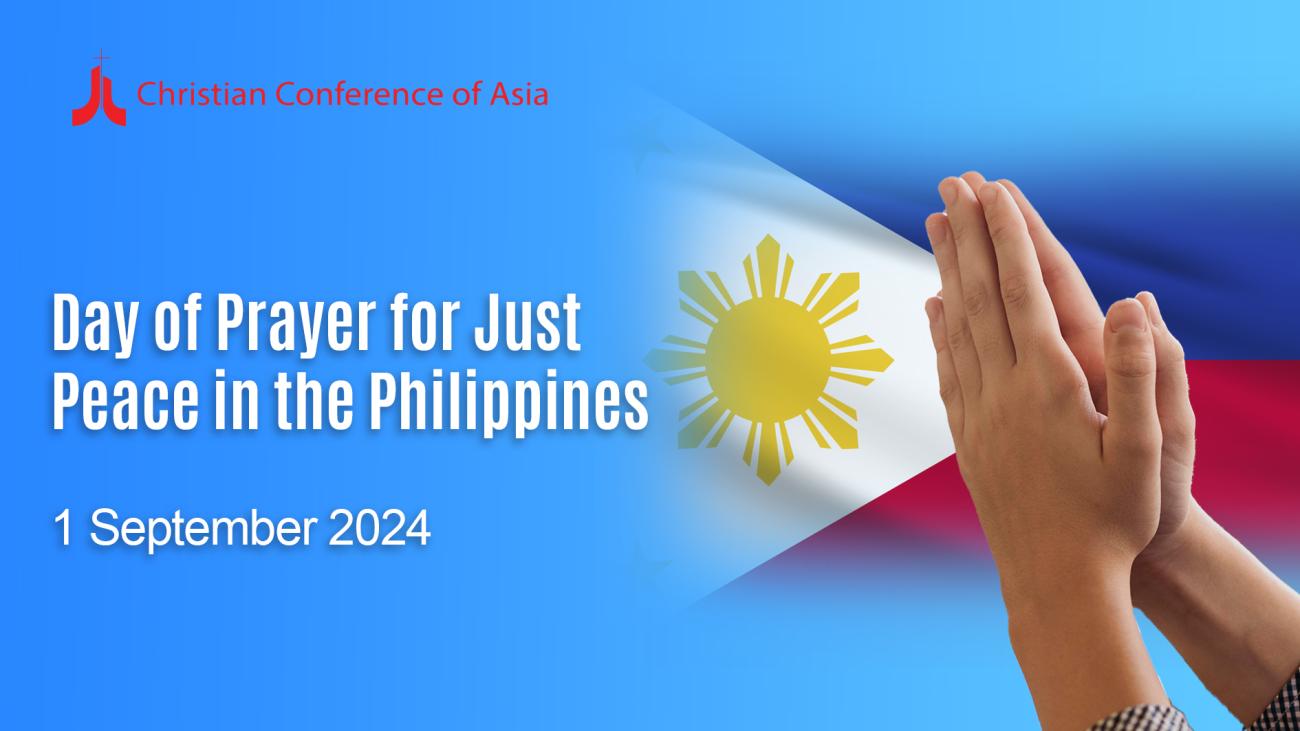CCA General Secretary urges GRP and NDFP to resume stalled peace negotiations in the Philippines

Chiang Mai, Thailand: The Christian Conference of Asia (CCA) General Secretary, Dr Mathews George Chunakara, has called for an urgent and renewed commitment to resume the stalled peace negotiations between the Government of the Republic of the Philippines (GRP) and the National Democratic Front of the Philippines (NDFP) to realise lasting peace and security.
Sunday, 1 September 2024 is declared as the National and International Day of Prayer for Just Peace in the Philippines by the National Council of Churches in the Philippines (NCCP).
In solidarity with the initiatives of the churches and the ecumenical movement in the Philippines advocating for the resumption of peace negotiations between the GRP and NDFP, the CCA General Secretary stated, “The root causes of the ongoing conflict in the Philippines remain unaddressed, and military solutions alone have proven inadequate in achieving conflict resolution and lasting peace. It is imperative that both the GRP and the NDFP return to the negotiating table with determination to resolve the longstanding conflict and people’s struggle for human rights. Comprehensive dialogue must address social injustices, economic disparities, and human rights violations that fuel the conflict in Filipino society.”
Since 1969, the Philippines has experienced ongoing armed conflict between the GRP and the Communist Party of the Philippines/New People's Army/National Democratic Front (CPP-NPA-NDFP).
Efforts to address the conflict through peace negotiations have seen intermittent progress, including the signing of The Hague Joint Declaration on 1 September, 1992, and other agreements like the Comprehensive Agreement for Respect for Human Rights and International Humanitarian Law (CARHRIHL). However, the peace process has faced setbacks several times, and the last such action was the unilateral termination of negotiations by former President Rodrigo Duterte in 2017.
A Joint Statement by the GRP and the NDFP in November 2023 suggested a potential resumption of peace talks, but no formal action followed. Meanwhile, the conflict continues, with ongoing military skirmishes and concerns over the shrinking civic space. Counter-insurgency programmes have led to severe human rights violations, internal displacement, the diversion of enormous funds from the budget for social services to military spending, and the loss of thousands of lives, mainly civilians.
“Ensuring peace and people’s security requires addressing the root causes of the conflict through dialogue. The continuation of military operations, red-tagging, and human rights abuses only deepens divisions among people and communities and prolongs suffering of the poor and marginalized people. By resuming peace talks, the government can work towards a just and enduring resolution that upholds the human rights of its citizens, fosters socio-economic development, human security and promotes national unity”, added Dr. Mathews George Chunakara.
The CCA has prepared a prayer for peace and reconciliation in the Philippines in solidarity with the NCCP’s observance of the Day of Prayer.
“The CCA expresses solidarity with the National Council of Churches in the Philippines (NCCP) and supports its initiative in observing the Day of Prayer for just and lasting peace in the Philippines. While CCA is committed to accompanying the churches and the ecumenical movement, we urge member churches and councils of CCA to stand in solidarity with the people of the Philippines by observing this Day of Prayer for Just Peace in the Philippines on 1 September 2024”, said the CCA General Secretary.
The CCA’s prayer in solidarity with the NCCP’s observance of the Day of Prayer can be found here:










